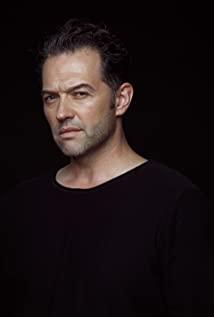The echelon system is the largest commercial monitoring network in the world.
The "Echelon" system was first born in 1948 after the end of World War II. At that time, in order to serve the needs of the two major military groups of the United States and the Soviet Union to carry out the "Cold War", the United States led the establishment of a global code-named "Echelon" (Echelon) to monitor the political, economic and military trends of the former Soviet Union. The United States, Britain, Canada, Australia, New Zealand and other countries have also signed a "secret security agreement" to ensure the legality of the system. According to the provisions of the "Secret Security Agreement", the "Ladder Array" system is jointly operated by various countries. The competent authorities of each country are the National Security Agency of the United States, the Government Communications Agency of the United Kingdom, the Canadian Communications Security Agency, the Defense Communications Service of Australia and the Communications of New Zealand. Security Bureau.
The "echelon" system has established large-scale listening stations in the above-mentioned countries, and can use the spy satellites floating in space to communicate with any country in the world. As well as eavesdropping on various radio signals including shortwave, civil aviation and marine communications. According to the analysis of communication experts, in fact, if the telephone or communication passes through satellite or microwave relay in any part of its transmission process, it is likely to be monitored by the "echelon" system. Even submarine cables or underground communication optical cables may often be connected to microwave networks at some point, so this "safe" wired communication method is not immune.
The largest electronic monitoring station is located in the Yorkshire Moors in England. In addition, there are listening stations of the "Ladder" system in Shoalwater Bay, Australia, Leitrim, Canada, and Waihopai, New Zealand. Although the United States has signed "security agreements" with the United Kingdom, Canada, Australia and other countries on the operation of the "Echelon" system, the status of each country in the sharing and use of the obtained intelligence results is different. The agreement stipulates that the United States has the highest priority in the use of intelligence, followed by the United Kingdom, while Canada, Australia, New Zealand and other countries, as well as Japan and South Korea, which joined later, have only third-rate status.
A shift in the "strategic center of gravity"
After the end of the "Cold War", the Western camp led by the United States lost its traditional opponent, and the "echelon" system established at a huge cost was not useful for a while. However, the United States is not willing to waste the "secret industry" that has been operating for decades, so it has shifted the "strategic focus" of its surveillance system to the increasingly competitive economic field. According to an investigation report released by the European Parliament recently, the US National Security Agency intercepted telephone calls, faxes and e-mails across Europe through the "Ladder Array" system, and then sent them back to the Milder headquarters in Maryland for analysis. . In order to help American companies gain a favorable position in business competition, the United States frantically collects top-secret commercial intelligence of European allies, which "directly damages the commercial trade and political interests and security of European countries." The NSA got involved as early as 1994 when Airbus Industries, Europe's largest aircraft maker, was competing with two U.S. companies for a large order from Saudi Arabia. The National Security Agency overheard all phone calls and faxes between Airbus Europe, Saudi Arabian National Airlines, and the Saudi government through the "Echelon" system, and found that Airbus representatives were paying bribes to Saudi officials. So it passed this intelligence on to the U.S. government and the competing Boeing and McDonnell Douglas, so that the two U.S. companies eventually won the bid at a favorable price of $6 billion.
Embarrassment after exposure
As early as 1988, the well-known British investigative journalist Durken once wrote an article to disclose that there is a huge multinational electronic surveillance network in Europe. However, since Durken did not provide details of the system at the time, nor did it mention the name of the network, it went unnoticed. It was not until 1998 that a survey report titled "Science and Technology Choice Assessment" led by Alain Pompidou, a member of the European Parliament, introduced the basic situation of the "echelon" system in more detail. After the report was released, there was an uproar across Europe, forcing the European Parliament to order another more in-depth investigation of the "echelon" system. There is widespread concern in European countries that the United States is trying to use this huge surveillance system developed during the Cold War to expand its economic interests and turn it into a complete means of commercial espionage. Members of the European Parliament all believe that either the US "echelon" system should be completely dismantled, or all EU countries should participate in the operation of the system and the sharing of intelligence. At this point, have you ever known that your every move is under the surveillance of business rivals.
After the secret exposure of the "Echelon" system, the U.S. and British governments and intelligence agencies have behaved very consistently, either claiming "knowing nothing" or answering "no comment", in short, they are reluctant to publicly admit this global surveillance the existence of the network. However, Australia and Canada were forced to issue a statement under the "special" conditions at the time, but they did participate in the "echelon" system under the "special" conditions at the time, but they could guarantee that measures would be taken to ensure that the rights of their citizens would not be compromised. violated.
For the United States, which has always claimed to be the "protector of interests" of its European allies, the exposure of the "echelon" monitoring system not only seriously damaged its image as the "Western leader", but also expanded the relationship between the United States and its European allies to a certain extent. of pre-existing mistrust. Even the various media in the United States have questioned: "Why does the United States spy on its own friends?" "Do we need a new Cold War?" It seems that if the "echelon" incident is to be quelled , those in power in the United States may have to really think of a way.
View more about Echelon Conspiracy reviews











